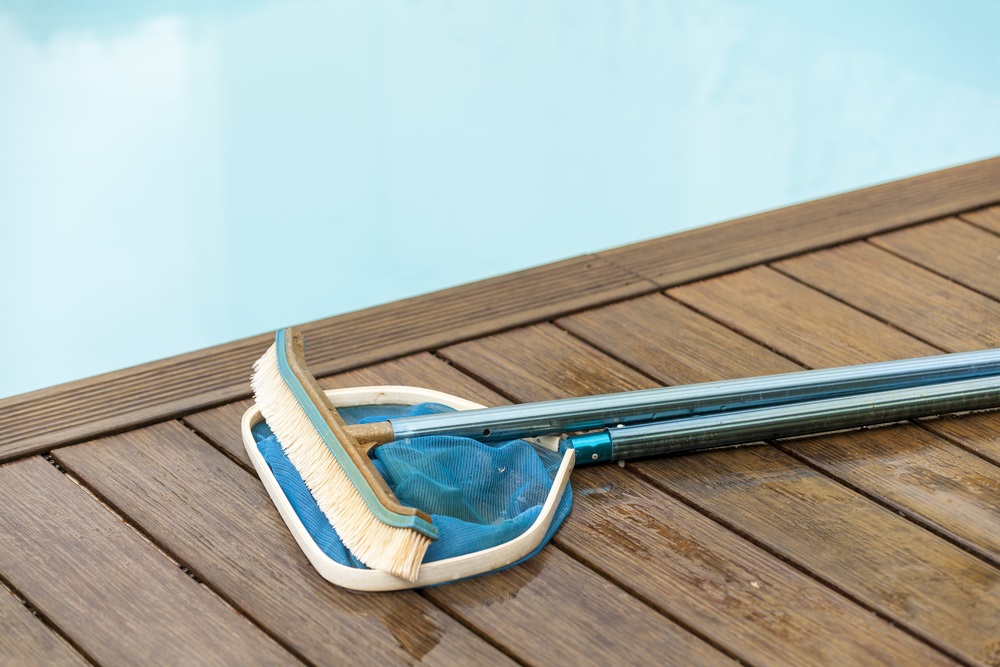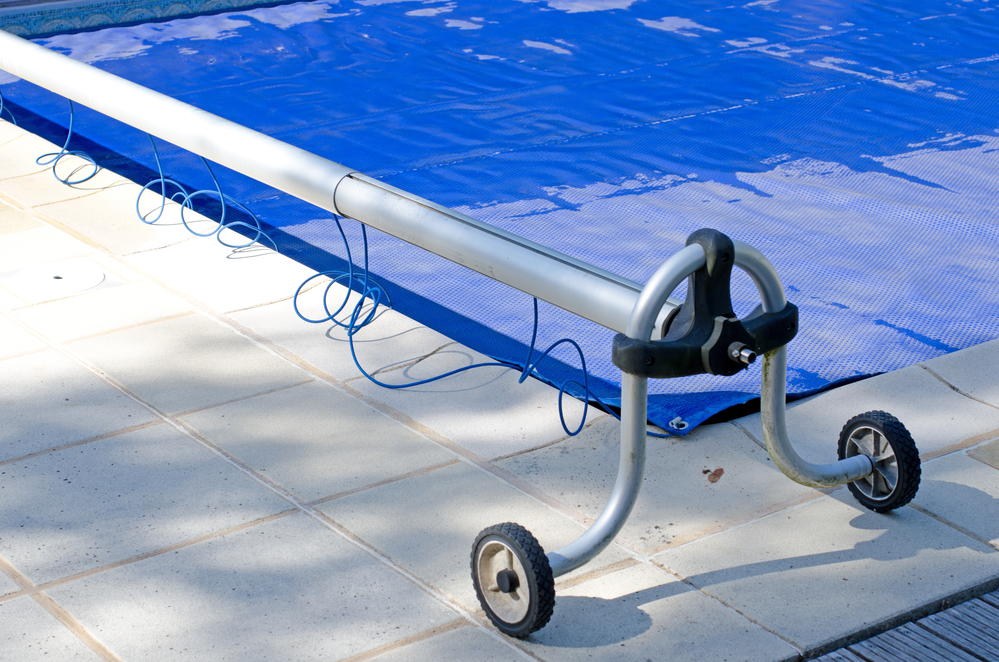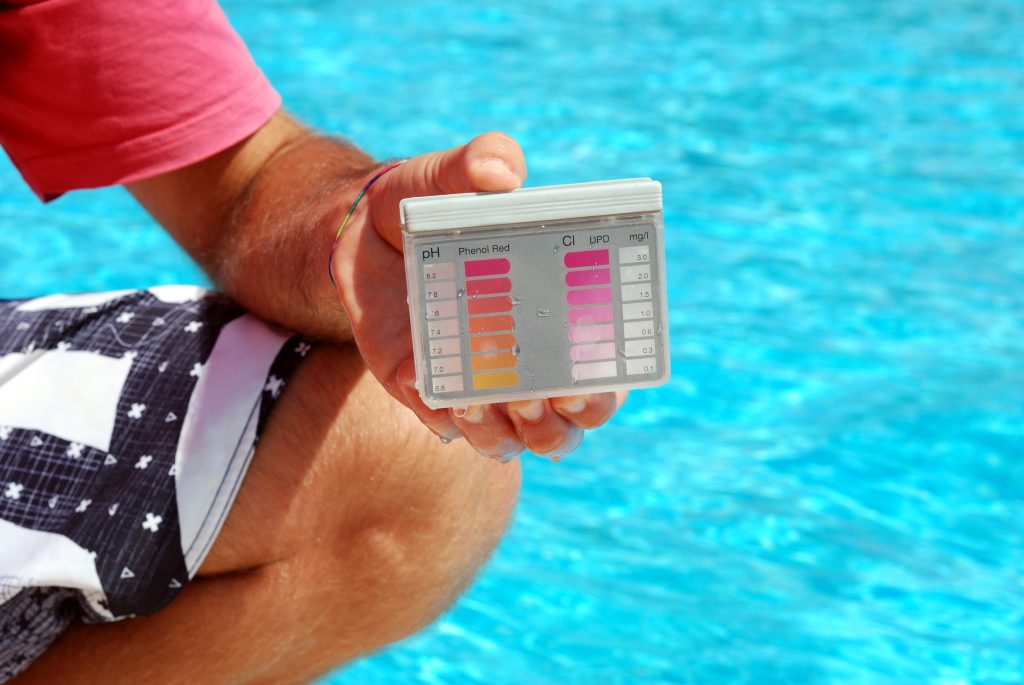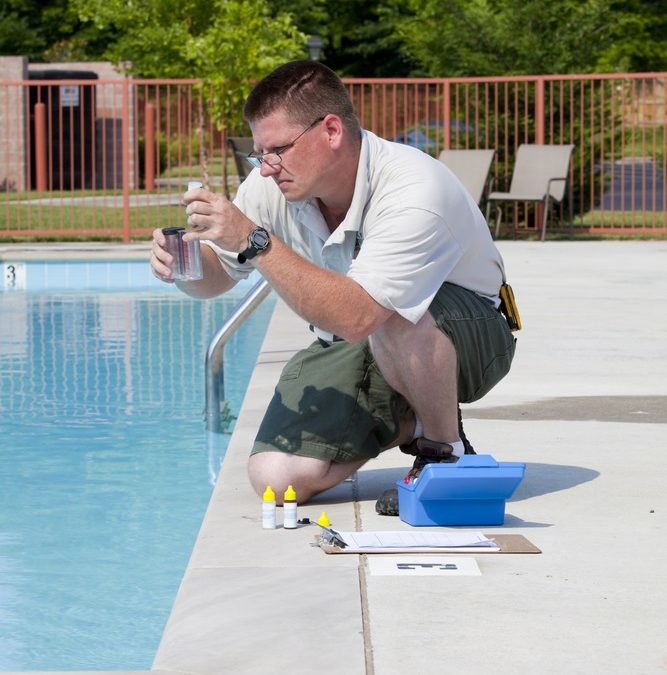Fun in the pool! That’s what everyone who owns a swimming pool wants and craves BUT to have fun in the ool you need to keep the pool water clean and bacteria free. You also need to assure the pool equipment is fully operational and that there are no holes or rips or any other structural issues with the pool itself.
Many pool owners find they feel more comfortable (and many save money!) by hiring the services of a swimming pool service contractor to to take care of the heavy lifting, as it were, for swimming pool water chemistry testing, maintenance and equipment inspection to assure it’s working as it should.
Even when you work with a pool contractor, you may still be the kind of person who wants to be involved in pool care between service visits. In fact, it makes sense for pool owners to understand the basics of pool care and maintenance in case it falls upon them to step up in an emergency. Also, if you know how your pool should sound and look you will notice quickly if something is amiss and can call on a pool professional to help you out.

Pool Care Essentials
When you hire a pool care professional you are able to spend more time in the pool instead of spending your free time working on it.
Pool service contractors bring their own equipment and chemicals when they pay a service visit but you may want to keep pool equipment on hand to keep up with basic pool maintenance between maintance contractor visits.
When you work with a pool contractor he will do the the majority of pool maintenance and you will only need to (or want to) do minimal upkeep.
What should you have on hand to care for your pool? Ask your pool contractor what he would add to, or subtract from, this basic list.
Pool chemicals. When you work with a pool service contractor you won’t have to buy or store chlorine or other pool chemicals. The pool contractor adds chlorine and other necessary chemicals during his service visits. Ask if you should have chlorine tablets on hand and whether they should be added between service visits. Chlorine keeps water borne pathogens from the water.
Pool vacuum. This is ideal to have on hand so you can vacuum between service visits. If you have a pool vacuum, your pool contractor will use that when he pays a service visit. Decide whether you want a manual vacuum or if you want to invest in a robotic pool vacuum to make between-service visits easier and less labor intensive.
 Tube of caulk. If there are cracks in the caulk around the swimming pool tiles, do a quick fix between service visits to keep the pool protected and the cracks from letting water leak in. Let your pool contractor know where you’d caulked so he can inspect it and assure it was a cosmetic fix rather than a structural fix.
Tube of caulk. If there are cracks in the caulk around the swimming pool tiles, do a quick fix between service visits to keep the pool protected and the cracks from letting water leak in. Let your pool contractor know where you’d caulked so he can inspect it and assure it was a cosmetic fix rather than a structural fix.
Pumice stone. This can be used to remove calcium or mineral build up stains. A pumice stone is an easy tool to remove deposits and stains below the water level. Use the stone gently so you don’t cause any damage to the pool. In fact, ask your pool contractor whether you should use a pumice stone or simply a soft rag — the type of pool material you have can determine that.
Fiberglass cleaning solution and polish. You will use this to keep swimming pool slides slippery and more comfortable to use. This solution and polish also protects the surface of the pool from the damaging rays of the sun. Use the polish to keep the swimming pool slide slippery and more comfortable to use.
Pool skimmer. This a long, telescoping item that has a screened basket at the end. You can easily skim off floating debris from the surface of the water.
Water test kit. This is a simple way to check the water chemistry between pool service visits. Ask your pool contractor how to understand the readings on the test kit. If there is a rain storm or if the water looks cloudy, or if you’re simply curious on the water chemstry, test the water between service visits. Write the readings down n a book and talk with your pool contractor if you have questions.
Life vests and safety equipment. Life vests, swim rings, telescoping poles and other equipment should be poolside at all times. You need to know what it is and how to use it in case of an emergency.
Pool cover. While not technically a “piece of equipment” for maintenance, using a pool cover can keep the water cleaner, longer. It can also help slow the rate of evaporation of the pool water. Pool owners who are diligent in the use of a pool cover may also use fewer pool chemicals. The type of cover you use can also double as a safety cover (understand the type you’re getting) and can help prevent dogs or your children from falling into the water.
What pool equipment should you have on hand and how do you use it? Ask your pool contractor what he recommends and then ask for advice on how to use it.

